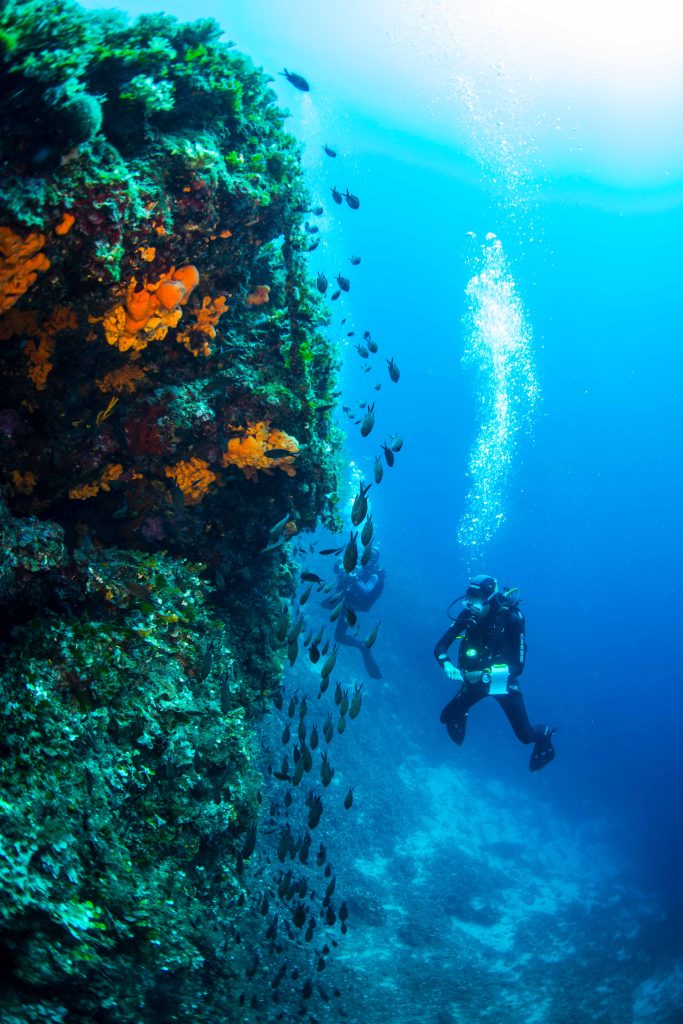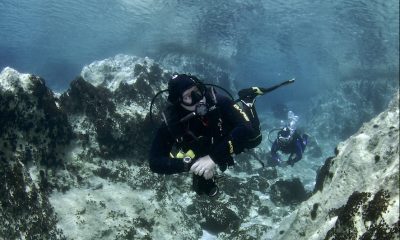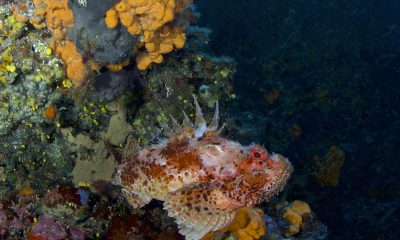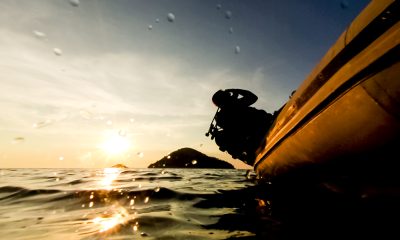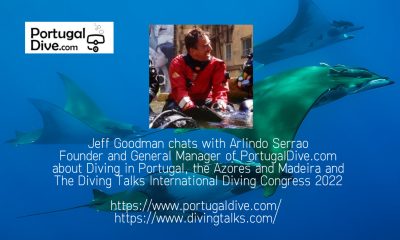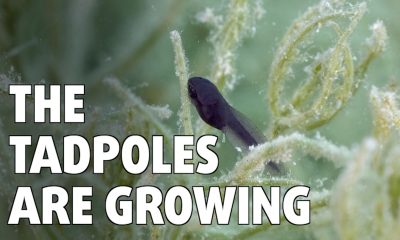News
Whale world record and the power of citizen science

 A sperm whale has been observed in the Azores archipelago in the middle of the Atlantic ocean over a 34 year time span, setting an observation record in the Atlantic and very possibly the world. The observations over this record-breaking time span were made by a combination of scientists and citizen scientists, showing once again the power of this increasingly prominent branch of science.
A sperm whale has been observed in the Azores archipelago in the middle of the Atlantic ocean over a 34 year time span, setting an observation record in the Atlantic and very possibly the world. The observations over this record-breaking time span were made by a combination of scientists and citizen scientists, showing once again the power of this increasingly prominent branch of science.
34 year record
The female sperm whale “19” was first seen in 1987 in the Azores during the research cruises of the International Fund for Animal Welfare. Scientists know she is a female, because she was spotted with several calves over the years. Thirty-four years later she was spotted again by cetacean scientist Lisa Steiner of Whale Watch Azores.
In between she was recorded in 1991, 1994, 2002, 2004, 2006, 2007, 2008, 2015, 2016 and 2021 by a combination of science and citizen science projects. She has not been seen outside of the Azores, but it is possible that her group has travelled to other parts of Macaronesia, like several other groups have.
CSI of the seas
Steiner, who is based on the Azores and has followed whales around the North Atlantic for 33 years, says: “Whale tails (flukes) are like fingerprints. By photographing flukes and then matching them up like a CSI of the seas, we can trace the movements of the animals. Being able to follow an animal for 34 years is amazing and once again shows the power of long-term datasets.” The significance of such findings goes well beyond mere scientific curiosity, however. As Steiner explains, “hearing the histories of individual whales catches the public’s imagination, because personal stories are much more interesting to the general public than generalisations, leading to increased interest and support. That support is priceless when protections for animals are being considered”.
Death and conservation
One example is whale “3418”, also a sperm whale, who was killed by a high-speed ferry in the Canaries. He had been seen for 15 years in the Azores, beginning when he was still a calf, before making the trip to the Canary Islands. His tragic and premature death is being used to promote speed limits of the high-speed inter-island ferries around the Canaries.
Citizen science gathers valuable data
Citizen science is defined as public participation in scientific research. Outcomes are often advancements in scientific research, as well as an increase in the public’s understanding of science. In nature conservation in particular, international citizen science has become increasingly important as a duel stream of data and funding. An example of this, citizen scientists of Biosphere Expeditions (an international non-profit NGO at the forefront of wildlife conservation powered by citizen science) have worked with Steiner on an annual Azores expedition since 2004 and contributed to this record-breaking fluke dataset.
Dr. Matthias Hammer, founder and executive director of Biosphere Expeditions, says the NGO “is proud to have contributed a piece of the puzzle to this Atlantic or possibly world record. This shows again how citizen science is part of the solution. This recent achievement is just the latest in a long line of citizen science contributions since our foundation in 1999, such as the creation of protected areas on four continents, amongst many others. Thank you to all our citizen and professional scientist, as well as all the other helpers over the years.”
For more information about Biosphere Expeditions visit their website by clicking here.
Header image: Sperm whale and calf (c) Gabriel Barathieu
Blogs
Amazing Alonissos – The all round dive vacation destination
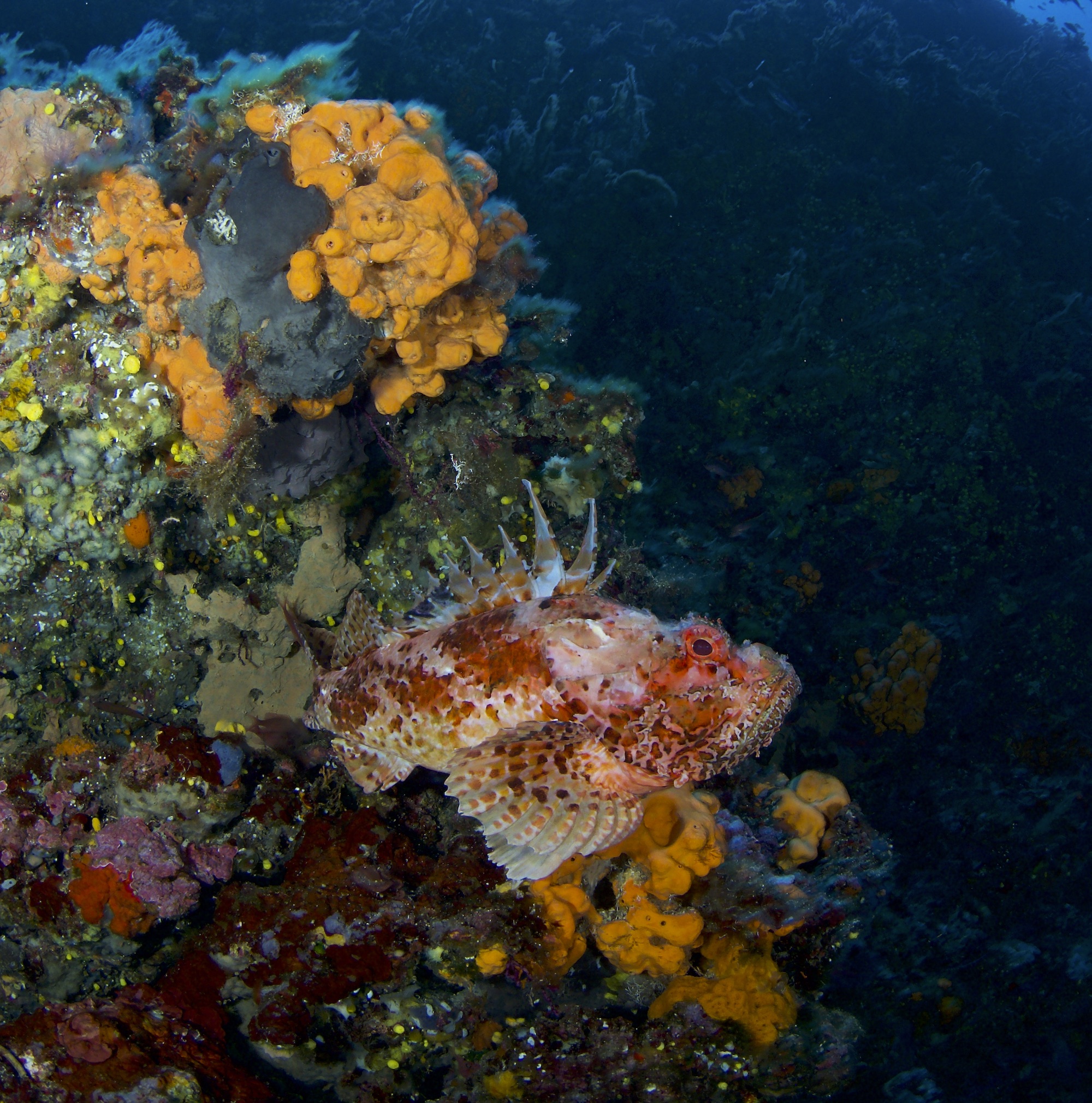
In early summer we were given a wonderful opportunity to visit Alonissos in the Sporades Islands in the northern Aegean Sea. This green and forested island sits at the edge of the Alonissos National Marine Park, the largest marine protected area in Europe. Our main focus was to be scuba diving, but during our short stay we were especially impressed with all of the other activities and experiences available on Alonissos for the discerning vacationer.
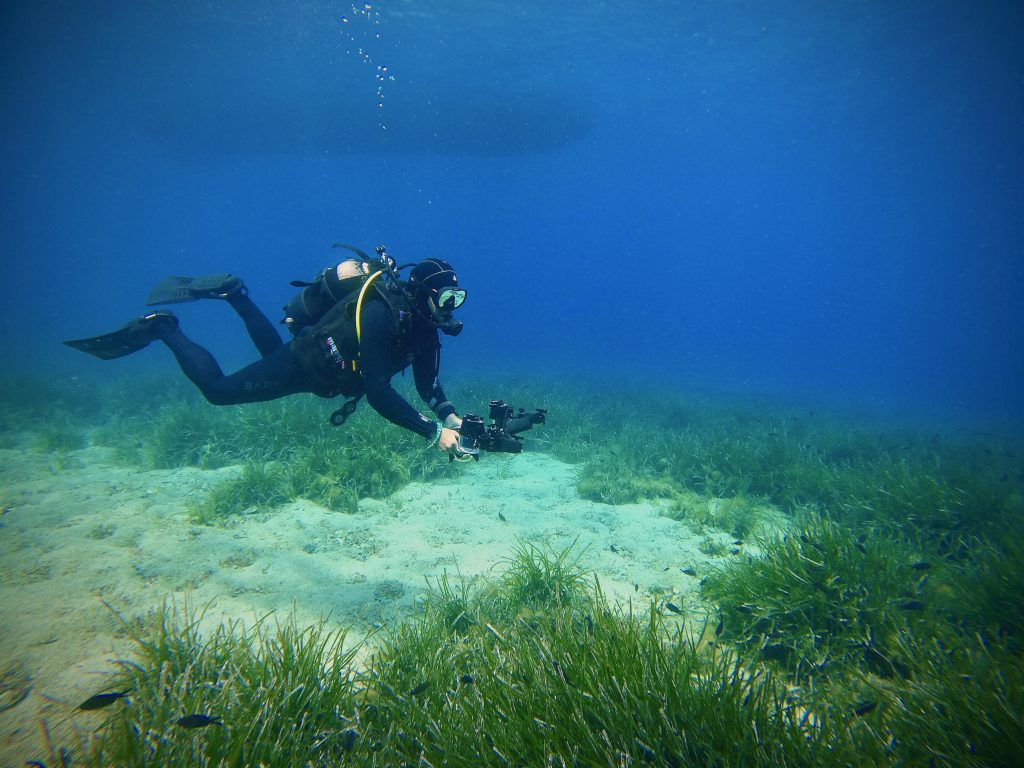
The scuba diving was really outstanding. In contrast to some areas of the Mediterranean, the marine biodiversity here was impressively diverse and abundant. Our short stay meant we just had a small taste of the diving available, however our hosts at Alonissos Triton Dive Center treated us to some exceptional sites from their impressively long list. The variety of marine life we encountered was a delight: large Gorgonian sea fans, many species of nudibranchs, small pipefish to large groupers, octopus, and much more.
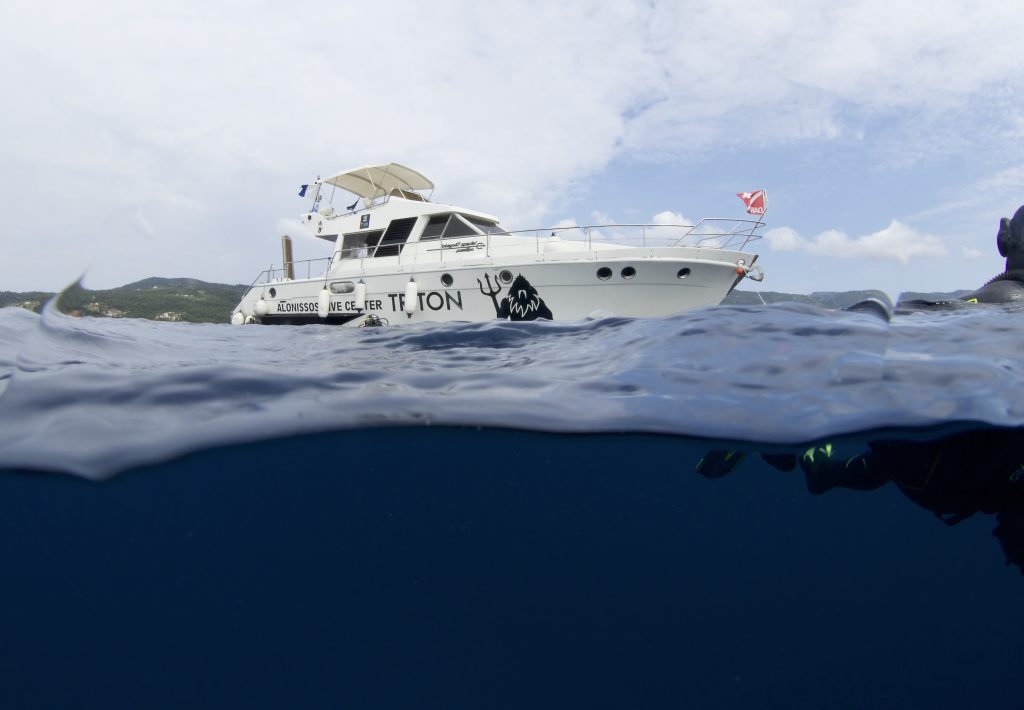
One of the most incredible experiences was the chance to dive the oldest accessible shipwreck in the world, the Ancient Shipwreck of Peristera underwater archeological site from 500 BC … an amazing dive site with a very unique automated underwater museum monitoring system in place to protect its archaeological heritage. It was a busy but hugely satisfying few days of diving and we could certainly spend much longer on this idyllic isle!
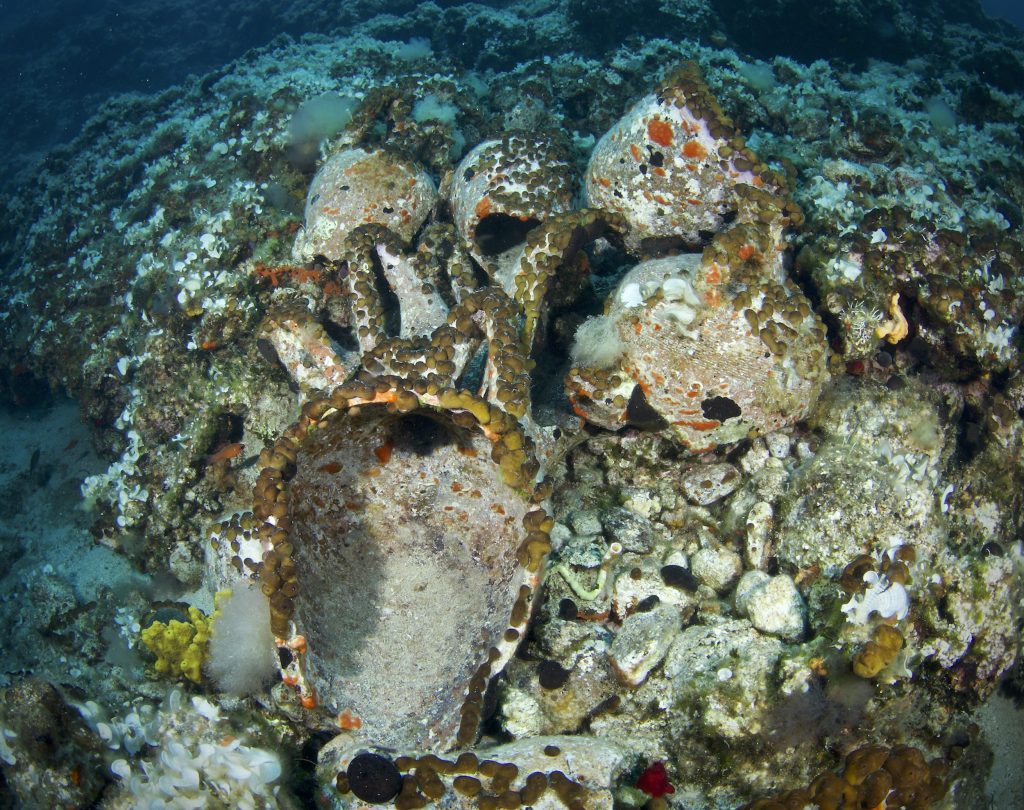
Greece has a huge number of beautiful islands to visit, so why choose Alonissos?
This island is one of the quieter Greek islands and as such has a very relaxed and welcoming feel, where you can find an authentic slice of the Aegean region. And, it is really easy to get there — so many airports in the UK offer flight connections directly to Skiathos (the hub of the Sporades) that you should not have to drive more than 100km in the UK to an airport.
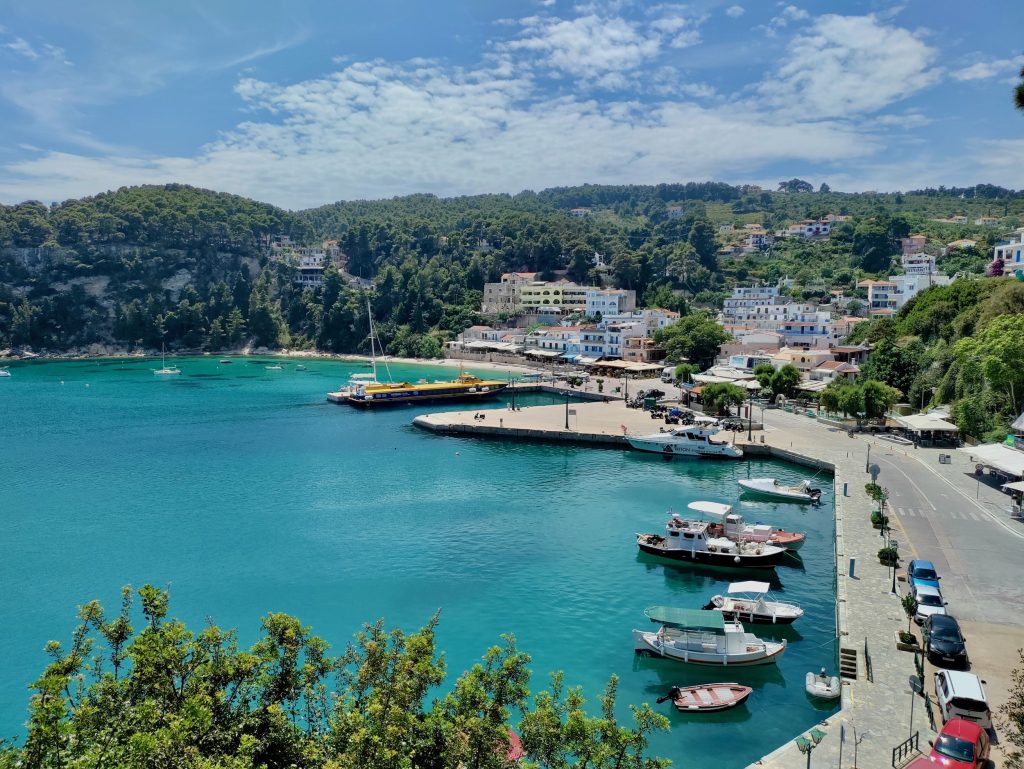
Finally, the variety of non-diving activities is hard to beat. There are boating day trips into the National Marine Park, taking you to visit secluded beaches and giving you a chance to see some amazing wildlife (such as monk seals, Eleonora’s Falcon, and several species of dolphin to name a few). Both the main port town of Patitiri and the old village of Chora are full of interesting shops, charming alleyways, and restaurants with delicious meals. As an added bonus, the Alonissos cheese pie is a particularly moreish local specialty!
As a holiday destination, Alonissos really had everything one could ask for. Look for our full print article in an upcoming issue of Scubaverse’s own Dive Travel Adventures magazine!
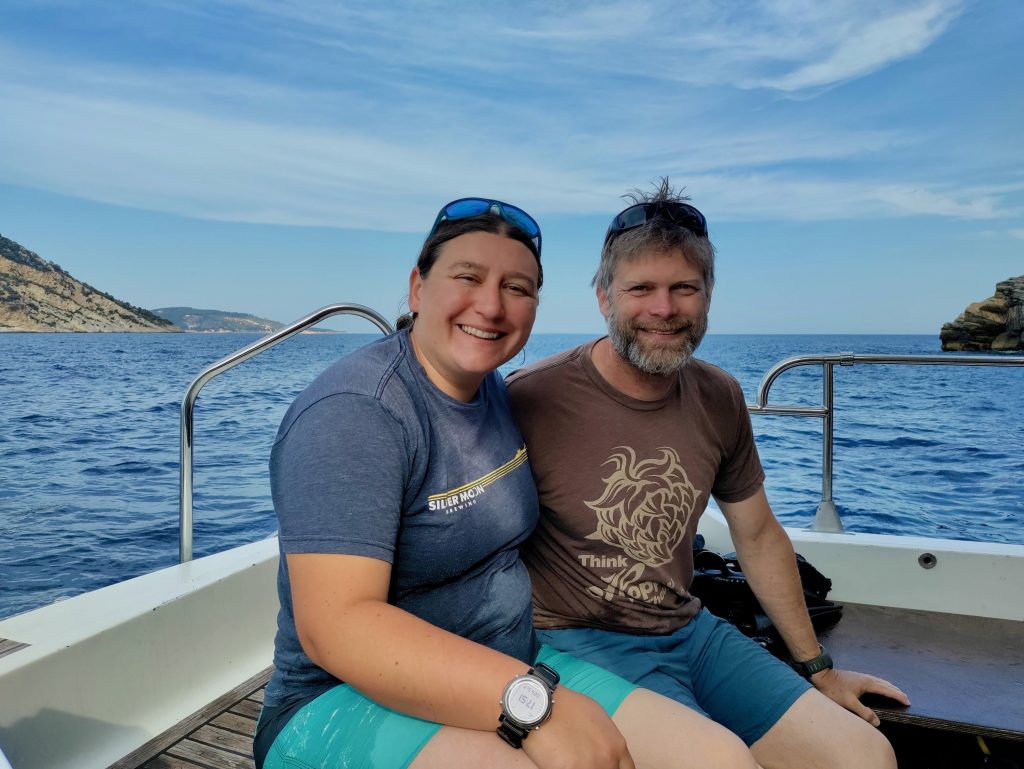
Thanks to:
The Municipality of Alonissos (https://alonissos.gr/en/)
Alonissos Triton Dive Center (https://bestdivingingreece.com)
Alonissos National Marine Park (https://alonissos.gr/en/marine-park/overview.html)
Paradise Hotel (https://paradise-hotel.gr/)
Albedo Travel (https://alonissosholidays.com/)
News
Diving With… Sporades Diving Group in Skopelos & Alonissos Islands, Greece
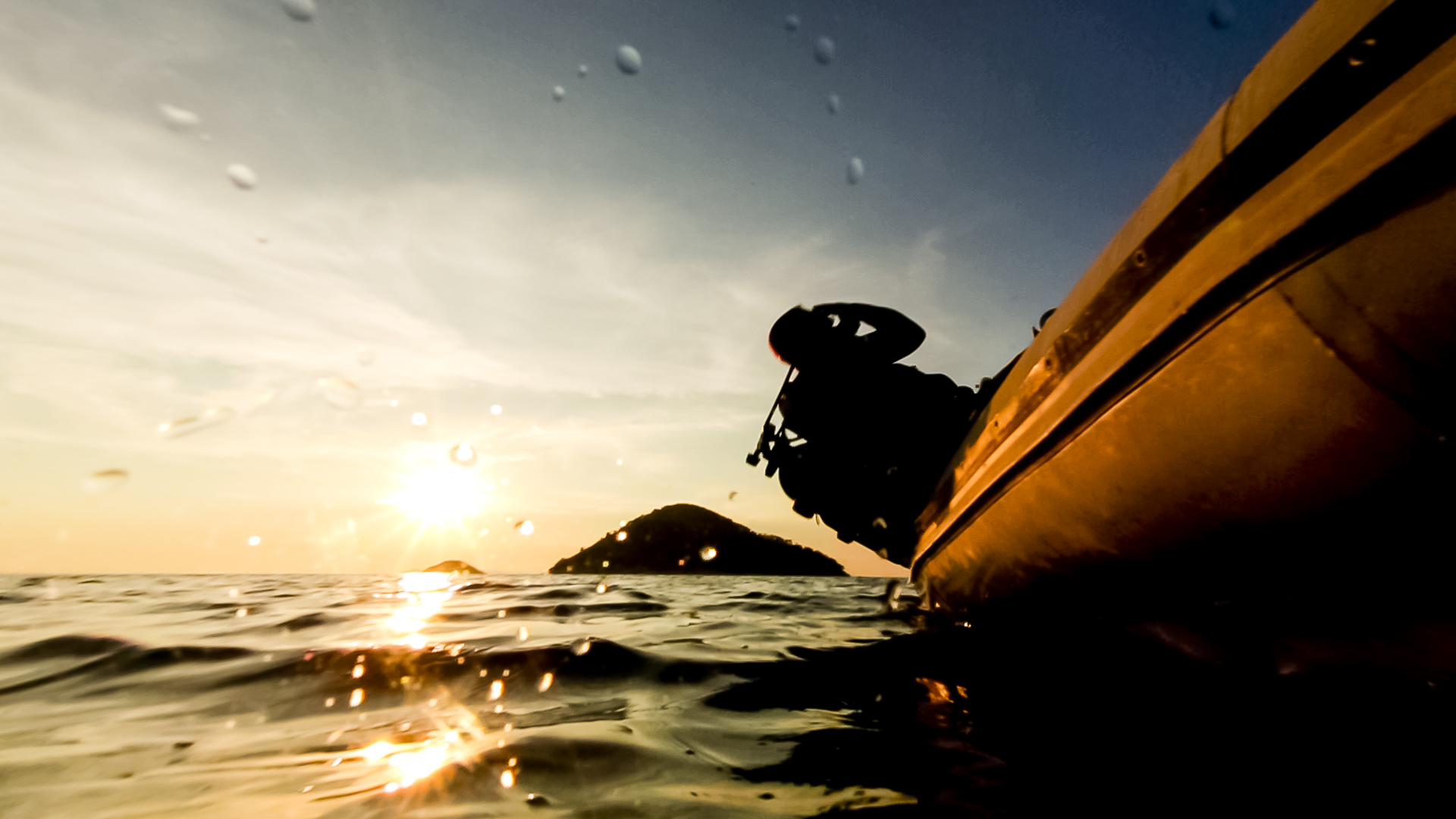
What is your name?
(Anastasios) Tasos Ktistis
What is the name of your business?
Sporades Diving: Skopelos Dive Center operates in Skopelos island and Ikion Diving that operates in Alonissos island, which is run by my business partner Kostas Danis.
What is your role within the business?
Master Scuba Diving Trainer PADI & Co-Owner of Skopelos Dive Center & Manager of Skopelos Island diving operations
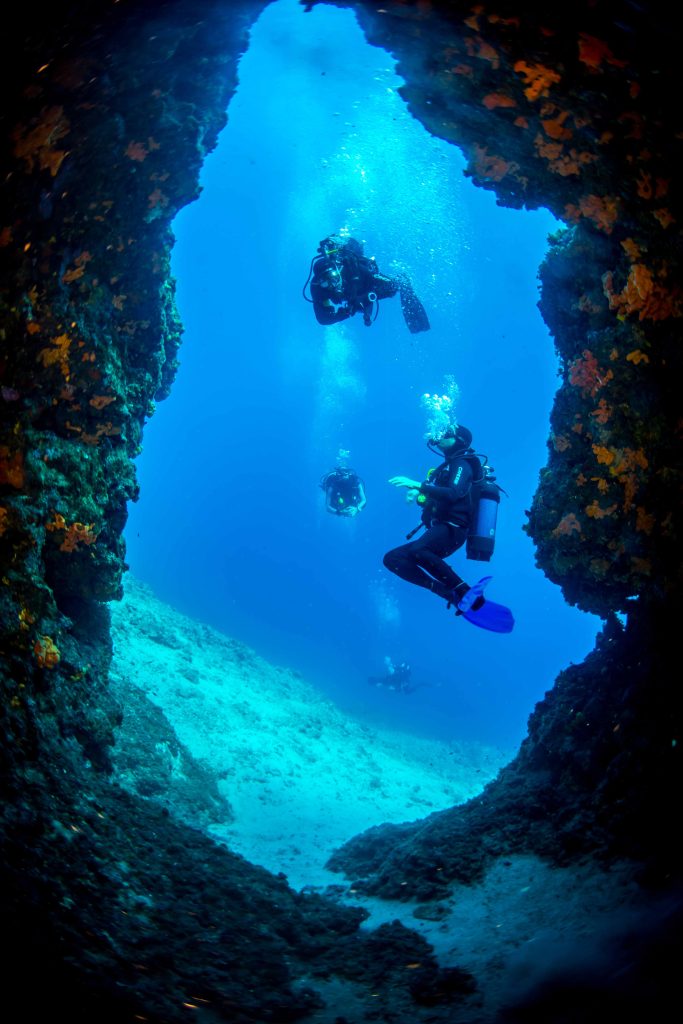
How long has the business operated for?
Since 2014
How long have you dived for, and what qualification are you?
I have been diving since 2012. I am a Mechanical Engineer with a BA in Documentary Photography and since 2012 I am qualified as a Master Scuba Diving Trainer PADI, since 2021 Tec65 diver and since 2022 as a Tec40 Diving Instructor
What is your favorite type of diving?
Wreck Diving
If you could tell people one thing about your business (or maybe more!) to make them want to visit you what would it be?
We offer our clients a safe and relaxed type of diving in the exciting and crystal-clear waters of the Sporades islands in Greece. Christoforos and Peristera’s ancient wreck are two must dive destinations.
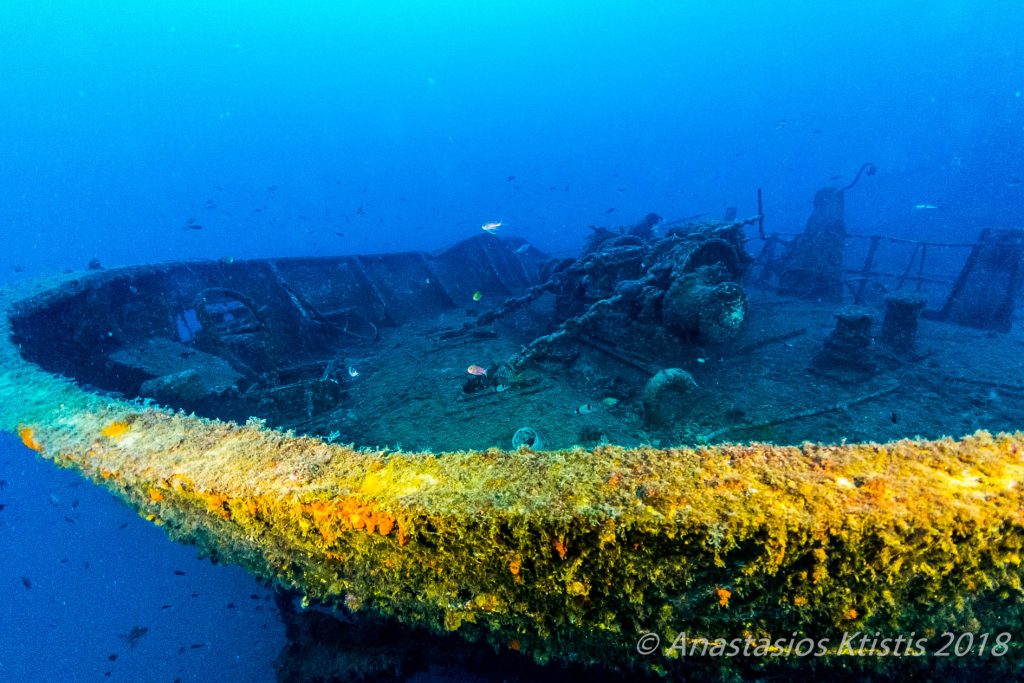
What is your favorite dive in your location and why?
My favorite dive location is the “Christophoros” shipwreck. A 83m long modern shipwreck that sank in 1983 in Panormos Bay in Skopelos island. As a wreck diving lover, I am so excited that as one of our dive locations I get to dive on this amazing site with our clients.
What types of diving are available in your location?
On our dive sites the rocky landscape is dominant with beautiful reefs, walls and caverns that I am sure everyone will enjoy. And of course wreck diving at the “Christophoros” shipwreck
What do you find most rewarding about your current role?
The satisfaction and the happiness on our clients’ faces after a dive.
What is your favorite underwater creature?
Nudibranches!
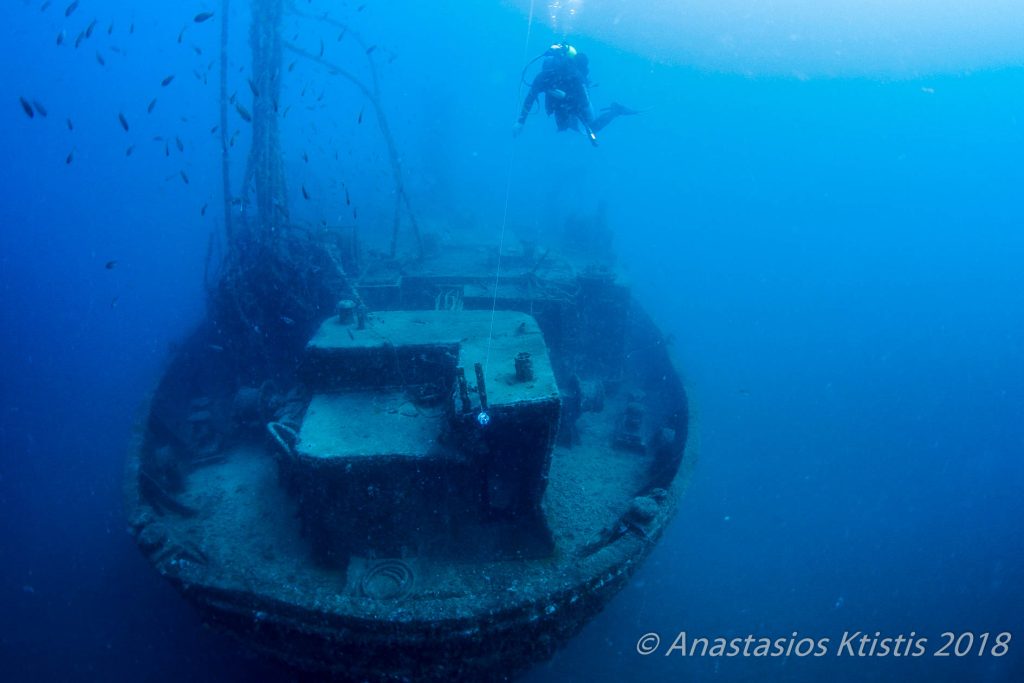
As a center what is the biggest problem you face at the moment?
I would say the fact that the Sporades islands have a short summer season (July-August) although the weather is ideal for diving from May till October.
Is your center involved in any environmental work?
Of course we are! First of all, we are all great advocates of the less plastic movement that has started in 2014, not only in Skopelos but also in Alonissos (Ikion Diving). We participate in underwater clean-ups as well as in projects for local management of plastic waste (#zeroplastic with iSea and Re-Shape plastic-funded by Beyond Plastic MED.)
Are there any exciting changes / developments coming up in the near future?
We currently aspire to get more involved in Scientific Diving projects by actively supporting the operations through our involvement in EU funded projects, while at the same time we are also exploring the possibilities of Technical Diving as me and my partner of the Alonissos base, Kostas Danis, are certified PADI Tec40 Instructors. We believe that in the future our business will be well known for not only its recreational diving services but also its involvement with the Scientific Diving community through its technical diving services and expertise.
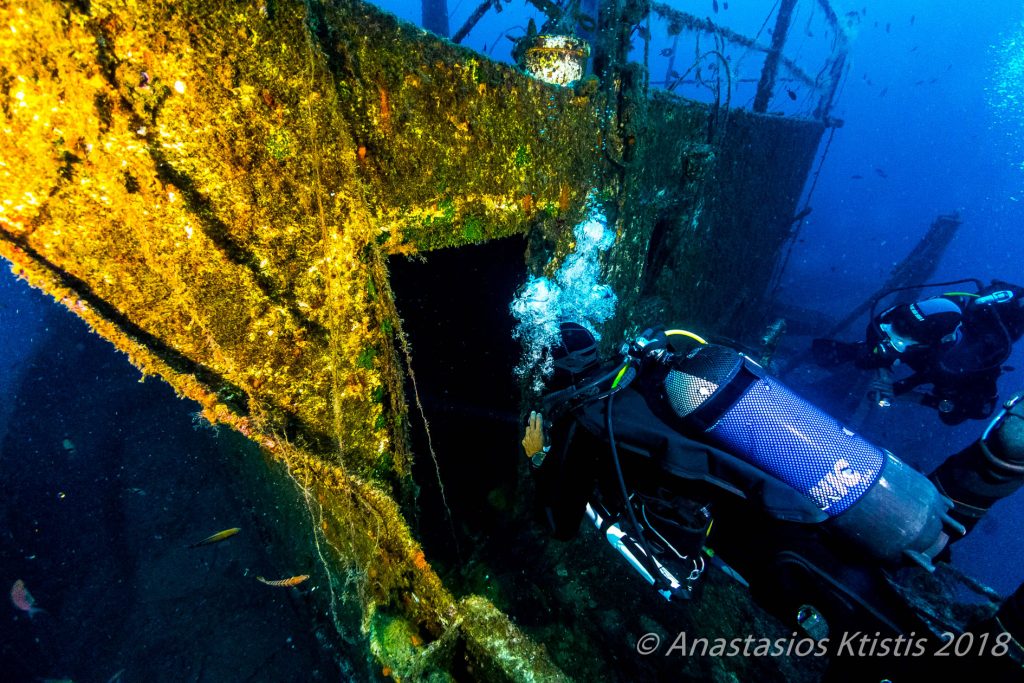
How do you see the SCUBA / Freediving / snorkeling industry overall? What changes would you make?
I believe that SCUBA and in general alternative tourism becomes more inclusive and even more people are interested to get to engage in this type of activities that ultimately protect the environment by raising awareness of the public about the ecosystem of the sea and its significance to a viable future.
Finally, what would you say to our visitors to promote the diving you have to offer?
At Skopelos Dive Center and Ikion Diving Alonissos (Sporades Diving Group) you can create fantastic underwater experiences – including guided dives, PADI courses, and snorkeling tours combining the two islands. It is our goal to create a safe, comfortable experience for divers of all abilities.
Where can our visitors find out more about your business? (This is where you enter your contact details and any specific details on how our audience can reach you)
Website: https://sporadesdiving.gr/
Skopelos Dive Center (Skopelos Island)
+306940448000
Ikion Diving Alonissos (Alonissos island)
+30 6940 448 004 (WhatsApp: +30 6984181598)
